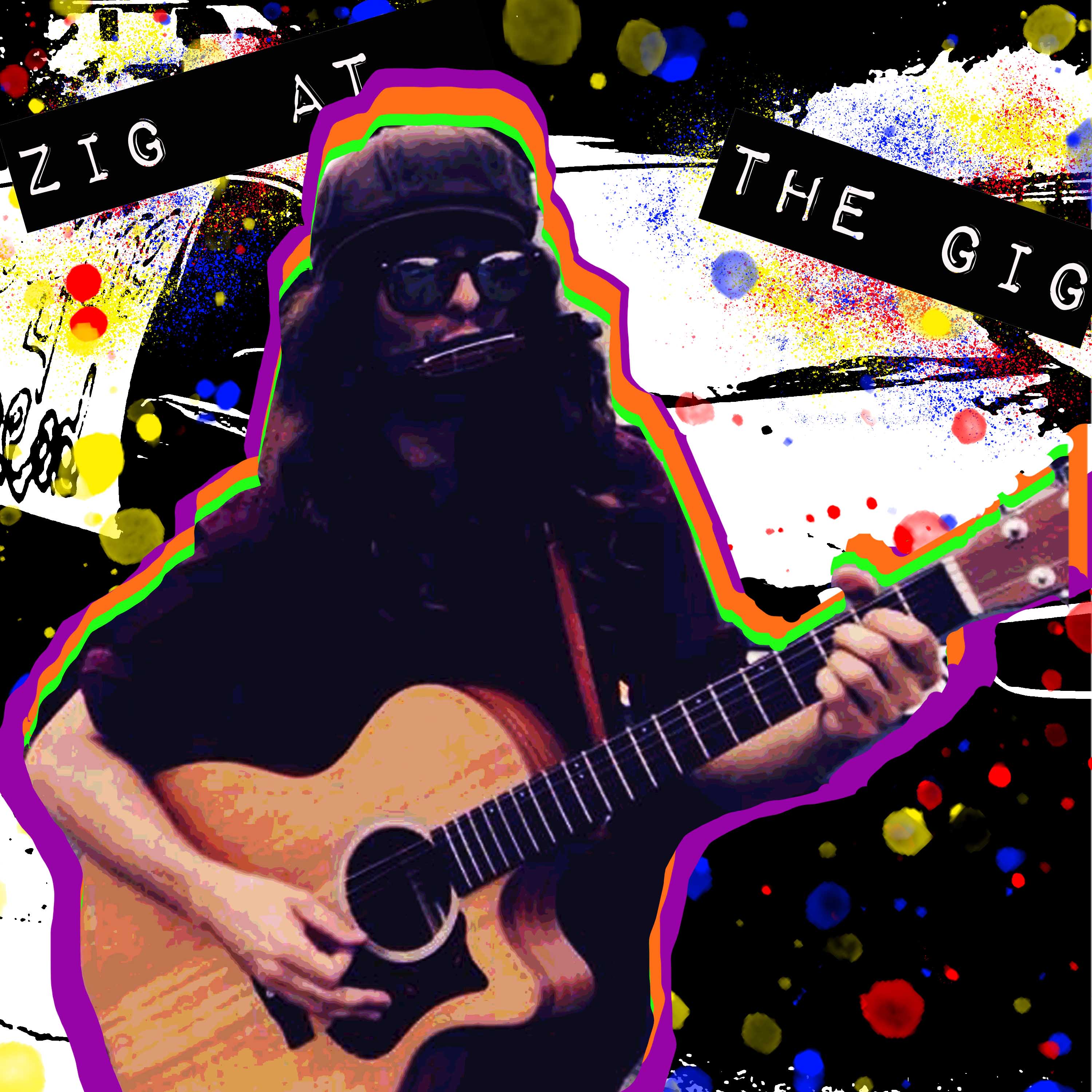
Dave Trumfio of PULSARS

Zig At The Gig podcast
Shownotes Transcript
PULSARS mark the end of that era. Leader Dave Trumfio (vocals, guitar, synths production and most anything else) and his younger brother Harry (drums) grew up playing music in a suburban Chicago basement. While still in his teens, Dave abandoned college-level music production and engineering studies to focus on songwriting and artist endeavors; his native talents soon found him an apprenticeship at Seagrape Studios working with talents as disparate as house music pioneer Mr Fingers, British first-wave stalwarts The Pretty Things and dub plate sessions with the legendary reggae producer / musician Niney The Observer . . . all within months of his first real go behind the mixing desk. Chicago's past musical glories felt far in the past then, replaced by a sea of skinny tie power pop bands, poofy hair metal combos of some timidity and a few rough-hewn exponents of sub-Buzzcocks punk and Fiorucci-ready new wave. Ignoring it all, Dave ran a small studio in a shared house he rented with friends before taking the risky - and expensive - plunge into opening a 'real' studio on the northwest corner of Wicker Park, soon to burst into a degree of infamy due to a small contingent of cult heroes who lived there for cheap rent and cheaper bars - Liz Phair, Eleventh Dream Day, Big Black, Urge Overkill, Tortoise et al. Daves role in all of this was minimal by nature; he preferred to record acts from farther afield - Billy Bragg, then-recent Chicago transplants Wilco, The Mekons, Young Marble Giants guitarist and songwriter Stuart Moxham, Barbara Manning, Captain Beefhearts main man Gary Lucas, an array of other acts from Iceland, Australia and all corners of the UK. Business was good, and it grew. A quick writer of odd pop ditties, one day Dave called in his brother Harry and recorded - in a single afternoon session - a set of nine demos known. The story's been related countless times, but within weeks the band was opening for Oasis and found itself being courted by a dozen labels. Their few local shows were undefinable. Dave played guitar and sang, Harry drummed triggered a reel of additional music, often with video backing . . . which dazzled spectators in that pre-laptop era. After months of negotiations, the band signed a multi-million deal with Almo Sounds, a new label begun by A&M founders Herb Alpert and Jerry Moss and distributed by Geffen. It was - and likely still is - the largest deal ever offered to an emerging Chicago musical act. The band engaged in numerous tours to support their self-titled debut, playing with Sean Lennon & Cibo Matto, Blur, Supergrass, and many others, as well as seemingly infinite jaunts to Japan, where Dave and Harry were hailed as heroes of subversive minimalist pop - the ecstatic screams of young fans at the first few notes of Submission To The Master& at first bewildering the brothers. Suddenly, the Almo Sounds deal with Geffen fell apart at the start of a tour supporting then-current sensations Weezer. Promotion was pulled; radio support for the first single from the album collapsed in a mere moment. Due to contractual vagaries, the band was allowed to complete a second (unreleased) album just before the label folded. And that was it, until the news of the 2021 release of Pulsar Transmissions", a collection of unheard songs and versions that the band recorded before and during their short-term deal. Rolling Stone offered their self titled debut ;Pulsars as one of the 40 greatest albums ever recorded by an act with one real album:
PULSARS's Info
Instagram: https://www.instagram.com/pulsarsband/?hl=en)
X / Twitter: https://x.com/PulsarsBand)
Facebook: https://www.facebook.com/pulsarsofficial/)